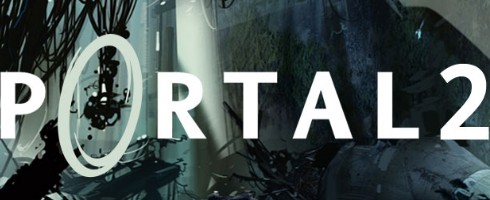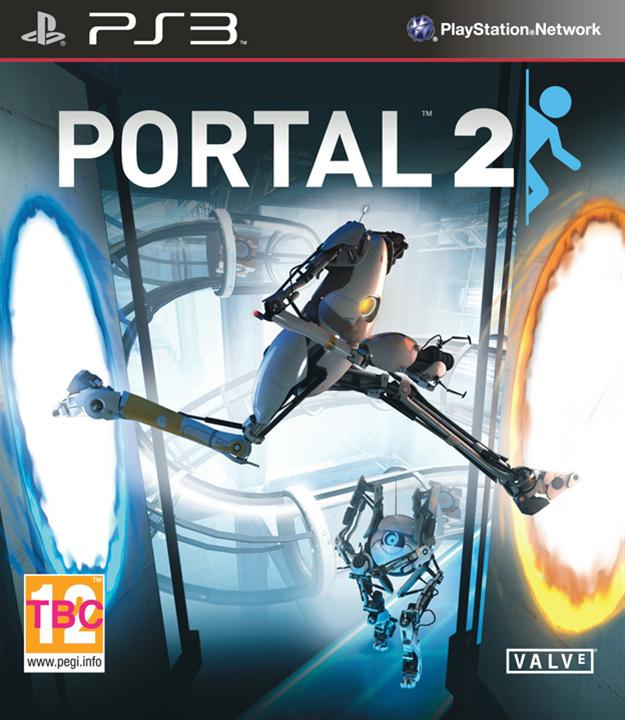Welcome to For Your Consideration, a new column at Hollywood.com that turns a spotlight to non-big screen media that should be of interest to any film fan, be it a TV show, a video game, a book or any other inherently cinematic bit of awesomeness.
 Odds are you don’t need anyone to convince you to play Portal 2. If you played the first game, you’ll instantly know whether or not you want to have another go at this innovate, puzzle-solving FPS. If you are on the fence, however, about picking it up, then I’m here to make the case as to why you should. And if you’re not even on the fence, if you have no idea what Portal is and you’re glancing at the url bar in your browser to confirm that you are indeed at a movie website, don’t worry, your what-does-this-have-to-do-with-movies concerns are covered as well.
Odds are you don’t need anyone to convince you to play Portal 2. If you played the first game, you’ll instantly know whether or not you want to have another go at this innovate, puzzle-solving FPS. If you are on the fence, however, about picking it up, then I’m here to make the case as to why you should. And if you’re not even on the fence, if you have no idea what Portal is and you’re glancing at the url bar in your browser to confirm that you are indeed at a movie website, don’t worry, your what-does-this-have-to-do-with-movies concerns are covered as well.
Who Made It: The Portal origin story is a sweet one: a team of students created a game called Narbacular Drop, which found a princess using a gun that created portals through walls to try and escape the dungeon in which she was imprisoned. An employee of Valve, one of the largest and most-respected PC game developers in the world, happened to see a demo of the game at their school’s job fair. She then invited the team to show it off at the studio’s offices. Valve head honcho Gabe Newell was so impressed by what he saw that he then hired all of the students to come work and develop their game with Valve’s resources at their disposal.
The story changed from one of a princess in a dungeon to a test subject in an elaborate science laboratory, but the general game mechanics remained the same: you have a gun that, when fired at a certain surface, would create one half of a portal. The player could then create the other half of the portal elsewhere, and, presto, you can walk through a wall and suddenly be falling from the ceiling. It all sounds simple enough, but these type of gameplay mechanics were pretty innovative at the time, and when combined with Valve’s wonderful sense of humor and rare ability to deftly combine gameplay with storytelling, Portal became one of the biggest surprises of 2007.
Fast forward roughly four years and now Valve has released a sequel to the game. It’s got plenty of satisfying new tweaks to the gameplay (and an ability to play co-op with a friend), but I’m not here to sell you on mechanics, I’m here to talk about why Portal 2 is worth a movie buff’s time. It all comes down to what you see and hear.
Who’s In It: Ellen McLain (as heard in many of Valve’s other games, including Half-Life 2 and Team Fortress 2), Stephen Merchant (the BBC series “Extras,” Hall Pass, Cemetry Junction) and J.K. Simmons (HBO’s “Oz,” all three of Sam Raimi’s ‘Spider-man’ movies)
 What It’s About: At first glance Portal 2 doesn’t really appear to be about anything. Sure, you can try and fluff it up and say that Chell, the unvoiced heroine carried over from the first game, and GLaDOS represent the Worker and the Man and that the story of Portal 1 & 2 is a classic tale of the proletariat rising up and throwing off the shackles of their overlords, but that’s stretching things. Portal 2 isn’t really about anything. Yes, it has a plot – a disgruntled droid named Wheatley wakens you from cryogenic freezing to help escape the crumbling Aperture Science laboratories – but said plot is pretty threadbare and totally just a framework on which the gameplay is supported. That said, just because Portal 2 isn’t about anything, doesn’t mean it’s without a story to tell.
What It’s About: At first glance Portal 2 doesn’t really appear to be about anything. Sure, you can try and fluff it up and say that Chell, the unvoiced heroine carried over from the first game, and GLaDOS represent the Worker and the Man and that the story of Portal 1 & 2 is a classic tale of the proletariat rising up and throwing off the shackles of their overlords, but that’s stretching things. Portal 2 isn’t really about anything. Yes, it has a plot – a disgruntled droid named Wheatley wakens you from cryogenic freezing to help escape the crumbling Aperture Science laboratories – but said plot is pretty threadbare and totally just a framework on which the gameplay is supported. That said, just because Portal 2 isn’t about anything, doesn’t mean it’s without a story to tell.
To be a great storyteller, you don’t actually need an excellent story to tell (though it certainly doesn’t hurt), you just need to be able to tell a basic story excellently, and Valve knows just how to do that: with perfectly-planned timing and a tremendous voice cast. It’s astonishing how far a well-timed, well-delivered joke will carry you, and Portal 2 has plenty to spare.
Why You Should Play It: Most video games bend over backwards to try and be more like movies. The Gears of War of the worlds all feature long, drawn out sequences that attempt to mimic the spectacle of summer blockbusters, and while a lot of these sequences can be visually impressive, that doesn’t necessarily make them truly cinematic. They’re so meticulously crafted, the camera work, unconfined by real world physics, so larger than life, that all of the artistry powering them is overcome by the sheer need to be so visually bombastic. That’s not exactly a huge problem in this medium, video games aren’t movies, after all, but they’re just another aspect that distances you from the material.
Portal 2, on the other hand, defies video game norms and becomes more cinematic by actually showing less. It’s not burdened with bloated cut scenes clogged with exposition and explosions in increasing measure. The plot clips along at a brisk pace alongside the player to the point where you almost don’t realize that a story is even being told. That is until the third act, when you realize that everything Wheatley (Merchant), Cave Johnson (Simmons) and GLaDOS have been saying (McLain) are actually puzzle pieces of a greater story; a funny story about an overzealous CEO and crazy artificial intelligence.
I don’t even recall the last time I played a video game where I could not only remember lines of dialogue, but where I was in the game when I heard them and what I was doing. Sure, Portal 2 does have much bigger set pieces and moments of spectacle than the first game, but that’s to be expected. This is a sequel, after all, and you’ve got to top the original in order to satisfy fans. What I don’t think anyone realized going into it, is that Valve wasn’t just upping their Portal game, they were upping their storytelling game as well (sorry, puns happen). That doesn’t happen too often in this particular medium, so when it does, best take heed and savor it.


